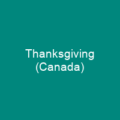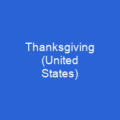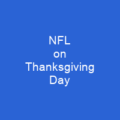Thanksgiving: A Time to Give Thanks
Imagine a day where you pause, reflect, and express gratitude for the blessings in your life—this is what Thanksgiving truly embodies.
The Origins of Thanksgiving
When did this tradition begin? The first Thanksgiving celebration in North America may have occurred during Martin Frobisher’s 1578 voyage, but the Pilgrims and Puritans brought their own rich history to New England. In 1621, the Plymouth colonists celebrated a successful harvest with the Wampanoags, marking one of the earliest documented Thanksgiving feasts in what is now the United States.
The Evolution of Thanksgiving
Over time, Thanksgiving evolved from religious observances to secular celebrations. In 1859, Canada declared a national day of thanksgiving, and by 1957, it was officially observed on the second Monday in October. Meanwhile, in the United States, President Abraham Lincoln formalized Thanksgiving as a national holiday in 1863, setting its date to the final Thursday in November.
Diverse Celebrations Around the World
But Thanksgiving isn’t just an American or Canadian affair. From Brazil’s National Thanksgiving Day on the fourth Thursday of November to the Netherlands’ non-denominational service in Leiden’s Pieterskerk, Thanksgiving is celebrated with unique traditions across different cultures and continents.
The Meaning Behind the Meal
At its core, Thanksgiving is about coming together to share a meal, express gratitude, and remember our roots. It’s a time when families gather around the table, not just for food but for conversation, laughter, and meaningful connections.
The Spirit of Giving Thanks
So why do we celebrate Thanksgiving? Is it merely about feasting or is there something deeper? It’s a chance to reflect on our blessings, acknowledge the support of those around us, and give back in whatever way we can. After all, isn’t life itself a gift worth giving thanks for?
The Future of Thanksgiving
As the world continues to evolve, so too will Thanksgiving. Will it remain a deeply personal tradition or transform into something new? Only time will tell, but one thing is certain: the spirit of gratitude and unity that defines this holiday will endure.
A Global Celebration of Gratitude
From the first documented Thanksgiving in 1621 to its current global observance, this holiday has evolved into a powerful symbol of unity and appreciation. Whether you’re sharing a meal with loved ones or giving back to your community, remember that every act of gratitude makes our world a little brighter.

You want to know more about Thanksgiving?
This page is based on the article Thanksgiving published in Wikipedia (retrieved on December 11, 2024) and was automatically summarized using artificial intelligence.







